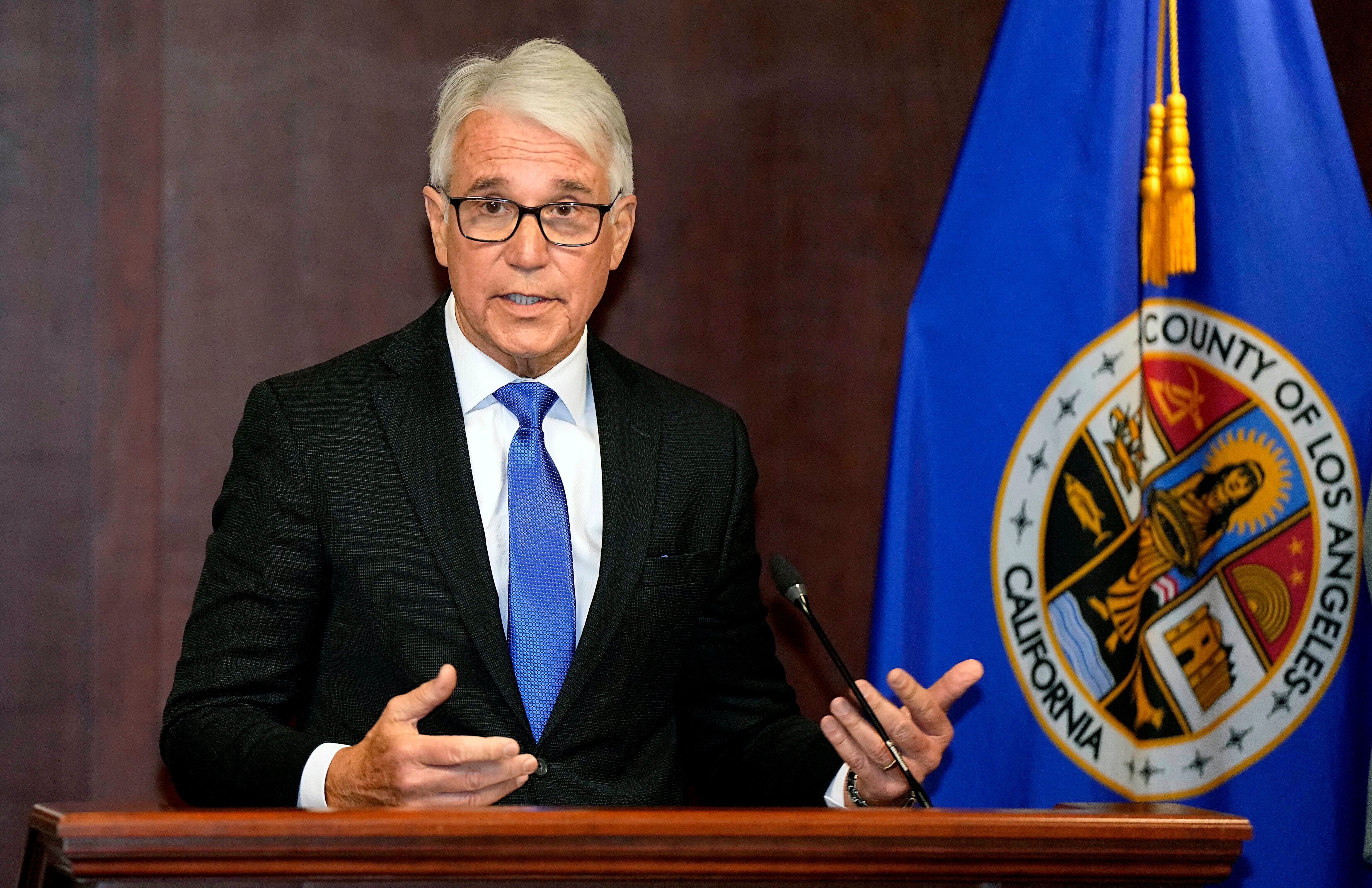Progressive Los Angeles County District Attorney George Gascón advances to runoff
Los Angeles County District Attorney George Gascón has advanced to a runoff in his reelection bid

Your support helps us to tell the story
From reproductive rights to climate change to Big Tech, The Independent is on the ground when the story is developing. Whether it's investigating the financials of Elon Musk's pro-Trump PAC or producing our latest documentary, 'The A Word', which shines a light on the American women fighting for reproductive rights, we know how important it is to parse out the facts from the messaging.
At such a critical moment in US history, we need reporters on the ground. Your donation allows us to keep sending journalists to speak to both sides of the story.
The Independent is trusted by Americans across the entire political spectrum. And unlike many other quality news outlets, we choose not to lock Americans out of our reporting and analysis with paywalls. We believe quality journalism should be available to everyone, paid for by those who can afford it.
Your support makes all the difference.One of the country’s most progressive prosecutors, George Gascón, has advanced to a runoff in his reelection bid for Los Angeles County’s district attorney, surviving a primary race that pit him against 11 challengers.
Gascón will compete in November against the second highest vote-getter from Tuesday’s primary in the race to lead an agency that prosecutes cases in the most populous county in the U.S.
To win the primary outright in California, Gascón needed to get a 50%-plus-one vote. Anything less triggers a runoff race between the top two candidates in November regardless of party.
Political experts said Gascón was expected to advance from the nonpartisan primary but are less optimistic about his chances in the fall.
The primary set Gascón against opponents who ranged from line prosecutors in his own office to former federal prosecutors to county judges. They sought to blame Gascón and his progressive policies for widespread perceptions the city is unsafe, highlighting shocking footage of a series of brazen smash-and-grab robberies at luxury stores. The feeling of being unsafe is so pervasive that even the Los Angeles mayor and police chief said in January that they were working to fix the city’s image.
But while property crime increased nearly 3% within the sheriff’s jurisdiction of Los Angeles County from 2022 to 2023, violent crime decreased almost 1.5% in the same period.
Gascón was elected on a criminal justice reform platform in 2020, in the wake of George Floyd’s killing by police. He faced a recall attempt within his first 100 days and a second attempt later, which both failed to get on the ballot.
Nathan Hochman, a former federal prosecutor and one-time California attorney general candidate who ran as a Republican in 2022, was closely behind Gascón in early returns.
Hochman has tried to capitalize on voter anger over crime and homelessness, issues that led voters to unseat San Francisco District Attorney Chesa Boudin in a recall election in 2022. In his campaign ads, Hochman, a defense attorney, vowed to change the direction of the district attorney, saying: “It’s time we had a DA who fights for victims, not criminals.”
During his first term, Gascón immediately imposed his campaign agenda: not seeking the death penalty; not prosecuting juveniles as adults; ending cash bail for misdemeanors and nonviolent felonies; and no longer filing enhancements triggering stiffer sentences for certain elements of crimes, repeat offenses or gang membership.
He was forced to roll back some of his biggest reforms early in his tenure, such as initially ordering the elimination of more than 100 enhancements and elevating a hate crime from misdemeanor to a felony. The move infuriated victims’ advocates, and Gascón backpedaled, restoring enhancements in cases involving children, older people and people targeted because of their race, ethnicity, sexual orientation or disability.
His challengers have pledged to reverse many or nearly all of his most progressive policies, such as his early orders to eliminate filing for sentencing enhancements.